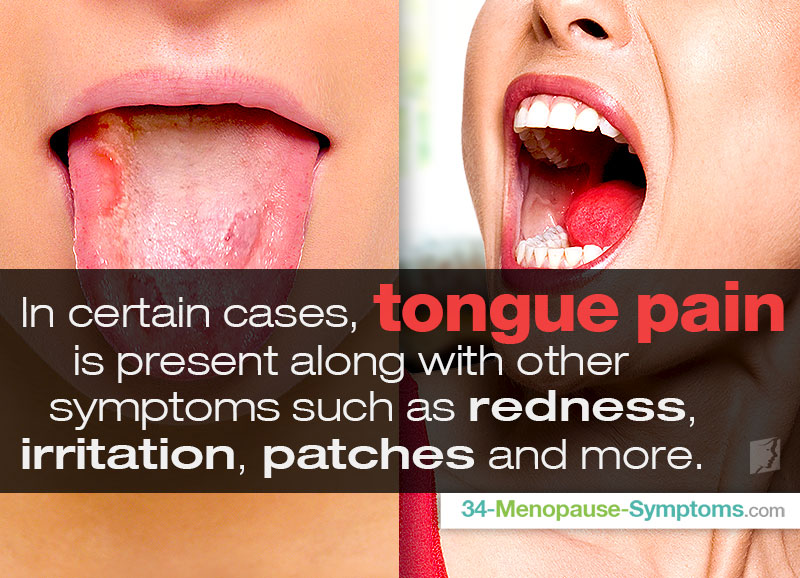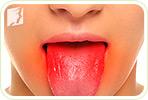Since tongue has such a rich nerve supply, pain sensations are usually quite severe and might be worrisome. It is a very common symptom in women of all ages, particularly those going through a hormonal transition. Although in most cases, tongue pain is not a reason to worry, it is worth keeping a few things in mind to avoid overlooking a more complex underlying cause. Here are the most important things to know about tongue pain.
The Symptoms of Tongue Pain
Pain is a subjective experience and can be felt in a variety of different ways. For some women, a burning sensation on the tongue might be painful and unbearable, while for others, a tongue over-sensitivity is achy and hard to tolerate. Dryness can also be the source of tongue pain.
In certain cases, tongue pain is present along with other symptoms, such as redness and irritation, swelling, patches or white coating, bad odor, and more.
The Causes of Tongue Pain
Often when the cause of tongue pain is not known and more serious conditions have been ruled out, estrogen and progesterone fluctuation during menopause becomes the main suspect. The other possible and common causes of tongue pain include:
- Medical conditions
- Diabetes
- Thyroid dysfunction
- Acid reflux
- Depression
- Anxiety disorder
- Infection or inflammation
- Oral thrush
- Syphilis
- Human papillomavirus (HPV)
- Herpes simplex Geographic tongue
- Injury
- Nerve damage
- Burns and bites
- Poorly fitted dentures
- Poor oral health
- Gum disease or tooth decay
- Mouth ulcers
- Allergy or sensitivity
- Food, preservatives, or cosmetics
- Burning mouth syndrome (BMS)
- Vitamin B12 and B9 deficiency and low iron
- Smoking, alcohol, and illegal drugs
- Medication side effects
Less common causes of tongue pain might include oral cancer, lichen planus, pemphigus vulgaris, Behcet's disease, and more.
Should I Be Worried?
Generally, tongue pain does not signal serious medical conditions. However, if it does not have a clear cause, such as a bite, it should be consulted with a doctor, especially if the pain is accompanied by any changes in color or surface of the tongue that do not go away within a few days. Severe tongue swelling requires a medical attention, because it might obstruct the airways and make it difficult to breathe. Also, persistent mouth ulcers that do not seem to heal should also be promptly reported to rule out oral cancer.
Moreover, if you feel that the pain in your tongue inhibits your life and makes you more prone to depression or anxiety, let your doctor know, so he can find more effective treatment for this symptom.
In many cases, tongue pain can be cured by treating vitamin deficiencies, changing medications, or clearing up infections with antibiotics or antifungal drugs. However, for those women who suffer from tongue pain during menopause, herbal supplements that balance the hormonal fluctuations, as well as natural remedies for tongue pain and burning might, be the most optimal treatment plan.
Sources
- Berry, J. (2016). 101 Easy Homemade Products for Your Skin, Health & Home. Page Street Publishing: Salem, MA, USA.
- Harrar, S. (2011). Relief at Last!: The Prevention Guide to Natural Pain Relief. Rodale: USA.
- National Health Service. (2016). Sore or painful tongue. Retrieved September 27, 2017 from http://www.nhs.uk/conditions/tongue-pain/Pages/Introduction.aspx



